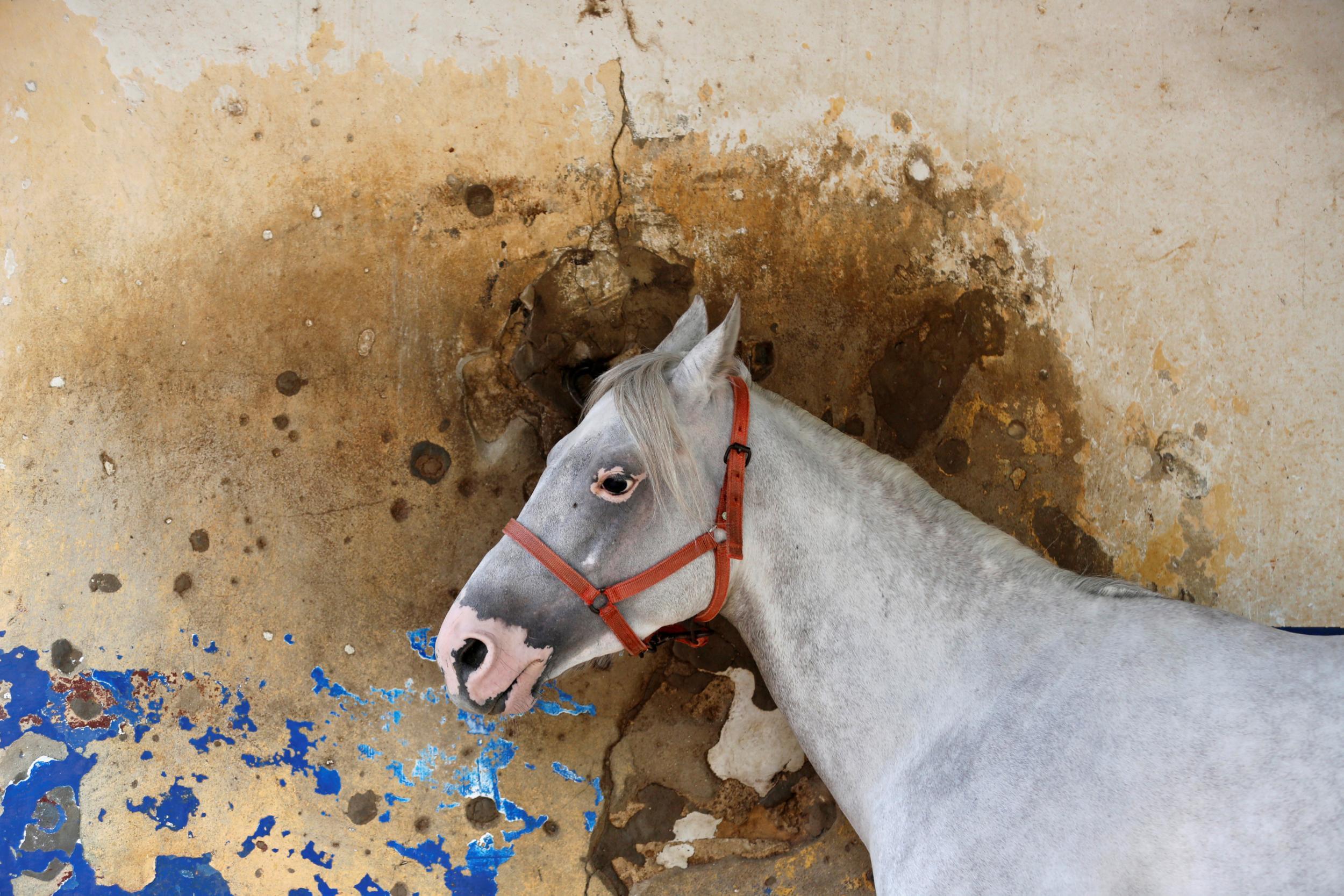Beirut's racetrack hopes for winning streak again
The 101-year-old racecourse had a glittering past before the Lebanese civil war and is now seeking investment from city authorities

Your support helps us to tell the story
From reproductive rights to climate change to Big Tech, The Independent is on the ground when the story is developing. Whether it's investigating the financials of Elon Musk's pro-Trump PAC or producing our latest documentary, 'The A Word', which shines a light on the American women fighting for reproductive rights, we know how important it is to parse out the facts from the messaging.
At such a critical moment in US history, we need reporters on the ground. Your donation allows us to keep sending journalists to speak to both sides of the story.
The Independent is trusted by Americans across the entire political spectrum. And unlike many other quality news outlets, we choose not to lock Americans out of our reporting and analysis with paywalls. We believe quality journalism should be available to everyone, paid for by those who can afford it.
Your support makes all the difference.Beirut’s racecourse, which hosted monarchs and movie stars in its chic heyday and survived Lebanon's civil war, is struggling to secure its future after years of slow decline.
The Hippodrome marked its centenary last year. But it has an ageing clientele, must fend of private developers and has lost revenue to illegal gambling.
Now it is seeking a younger crowd and new investment from city authorities.
Its director general Nabil Nasrallah is studying the draft of an advertisment for family-friendly night races, a move he hopes will bring in more youthful punters.
“Would it be better to use the phrase 'back a winner' or 'guess a winner'?” he wonders.
He proposes using what is rare patch of green in Beirut’s centre as a park on days when there is no racing, and hopes to restore the racecourse to its past glories with development projects.
The city authorities, which own it, have not yet put in the money, he says.
On white plastic chairs in the concrete stands, amid the chatter of conversation and the gurgle of water pipes, most men watching the horses one recent Sunday are middle-aged or older.
Many had patronised the Hippodrome since its 1960s heyday, when the city painted itself as the Paris of the Middle East and races drew a glittering high-society crowd.
“All the presidents of republics and officials visiting from abroad used to come here, like the Shah of Iran, [Saudi] King Abdulziz and the king of Greece. It was one of the most prestigious and beautiful places in Beirut,” Nasrallah says.
Back then the original elegant grandstand was filled with spectators and 15 horses ran each race, instead of five now.
The grandstand was smashed in the fighting when Israel occupied Beirut in 1982.
The Hippodrome was for years on the “Green Line”, the front between Lebanon's warring factions in the 1975-1990 civil war, and nearby city buildings still bear the marks of bullets and shrapnel on their ripped facades.
“We had more than 10,000 people coming from east and west, from the different sides, for race meetings,” says Nasrallah of races during the war. Unlike other crossing points on the front line, the racecourse was not a target for snipers.
But the Gulf sheikhs who used to race their thoroughbreds here now have racecourses in their own countries, although Islamic law bars the gambling that attracts many punters in Beirut.
Elias Yousef, a dandified 76-year-old barber sporting a scarlet handkerchief in the breast pocket of his white linen jacket, says he bets up to 100,000 Lebanese pounds (£51) a week.
“It's my sickness,” he says.
Nasrallah says that illegal gambling had reduced the volume of bets placed with official bookies at the racecourse.
In the VIP suite in the stand, five men sit around a table overlooking the course, filling ashtrays, emptying coffee cups and waving white betting slips.
They cheer raucously, ribbing a retired judge who had backed a horse that was disqualified for an infraction after romping home in first place.
A bell rings and spectators walk over to the white fences of an exercise yard to cast expert eyes over the horses before they run the next race.
There is a murmur of excitement and everybody rushes towards the stand, craning their necks for the start of the race.
“Come on! Come on!” the crowd shouts in Arabic and French. All eyes are fixed on the red dust of the track as the horses thunder past.
The winning jockey is a Syrian, a tiny man in orange and black colours, sweat and red dust staining his face. He came to race in Lebanon after the war in Syria began, he says.
After the race, he and the other jockeys gather in the weighing room, taking turns to sit in the harness of a wrought-iron scale while a man slowly adds weights until it tilts.
Outside, Jamil Helo, aged 85, sits waiting for the last race. He has come to the races in Beirut since 1965.
“Sometimes I win a little, sometimes I lose a lot,” he says.. “It's in my blood.”
Reuters
Join our commenting forum
Join thought-provoking conversations, follow other Independent readers and see their replies
Comments